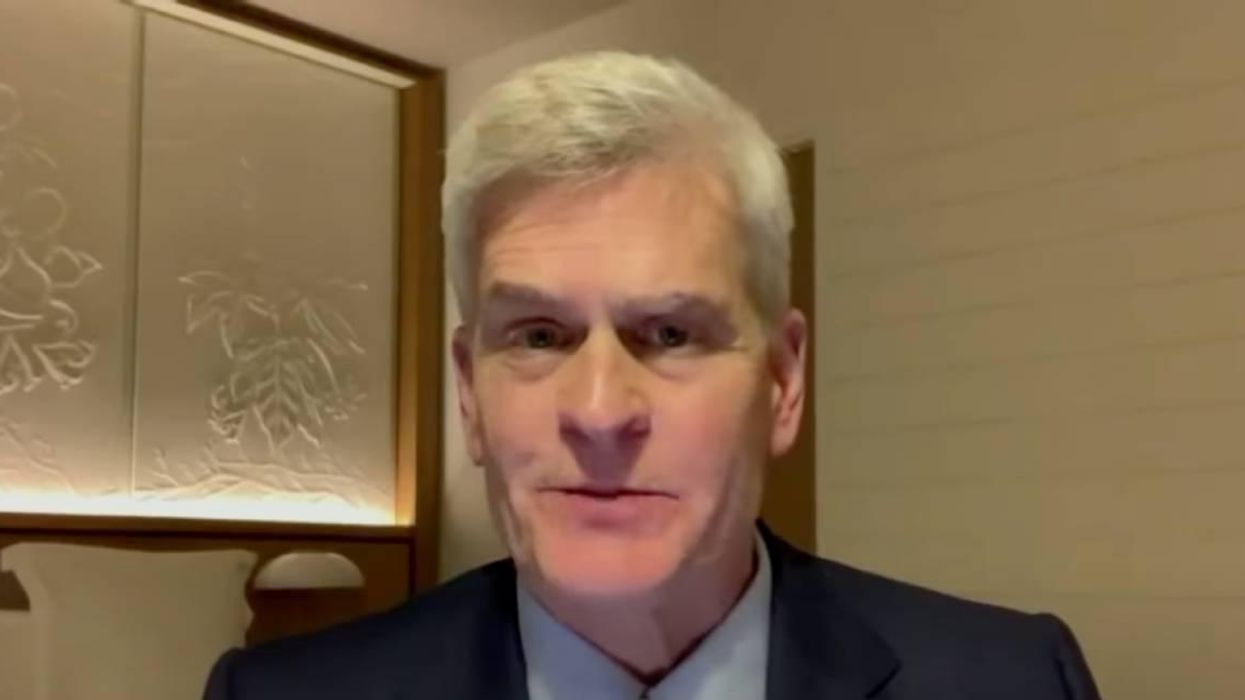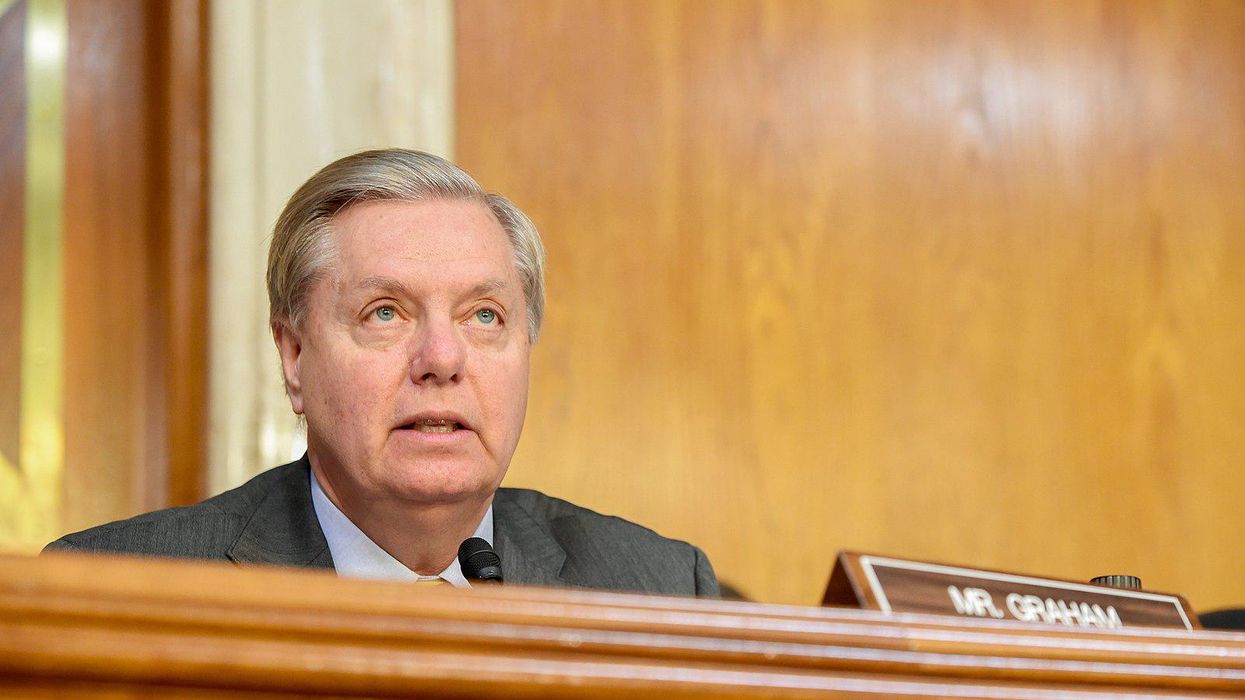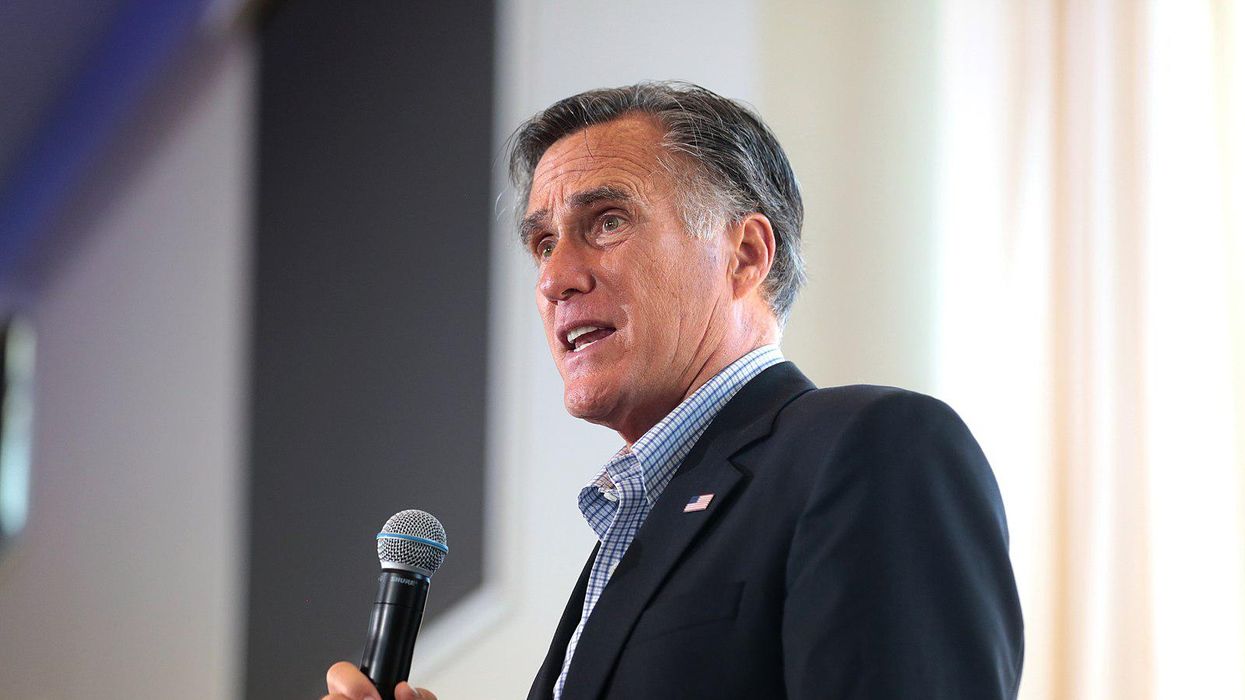Ignoring Evidence, Senate Republicans Blame Immigrants For Increasing Violent Crime
Studies show that immigrants are less likely to commit violent crimes than those born in the United States.
On Monday, Sen. Bill Cassidy (R-LA) introduced a resolution "urging the development of a strategy to counter the rise in violent crime across the United States."
"If there was ever a time that the American people want to know that the president and Congress are working together to defeat the scourge of crime, the time is now. This resolution is to send the message that combating crime is what we are focused on," Cassidy told Fox News in a statement.
The text of the resolution, which specifically calls out what it terms "gun violence in major, Democrat-run cities and States," accuses the Biden administration of pursuing an "alleged violent crime reduction strategy is actually a gun control strategy and wrongly puts lawful gun owners and dealers at the center of enforcement efforts instead of focusing on the criminals perpetuating violence, insecurity, and fear across the United States." It claims that "drug cartels have overburdened Border Patrol resources by surging illegal immigrants into strategic locations so that the cartels can traffic narcotics and other contraband into the United States undetected" and notes that "violent crimes related to illegal immigration and the illegal drug trade must stop for the sake of the sovereignty of the United States and the safety of the people of the United States."
The resolution expressly notes a correlation between violent crime and higher levels of undocumented immigrants, with no evidence whatsoever that one caused the other. It asserts that "rising violent crime in the United States can be directly correlated to a surge in illegal immigration at the southern border of the United States and a surge in the sale, distribution, and consumption of illegal drugs."
The text calls for a resolution "that it is the sense of the Senate that the President should work with Congress to develop and execute a strategy, drawing on the multiple instruments of power and resources of the United States to counter the rise in violent crime across the country by reinforcing strong criminal justice policies, by laying blame on the perpetrators of violent acts, and by securing the southern border."
Data shows that immigrants, documented or undocumented, are less likely to commit violent crimes than native-born citizens.
A study published by the journal Criminology in 2018 found "that undocumented immigration does not increase violence. Rather, the relationship between undocumented immigration and violent crime is generally negative, although not significant in all specifications."
Even the Cato Institute, which calls itself a promoter of libertarian ideas, reported statistics on crime in Texas that pushed back against Republican talking points: In an October 2020 blog post that repeatedly used the offensive term "illegal immigrants," the think tank referred to a study by its researchers that found:
In 2018, the illegal immigrant criminal conviction rate was 782 per 100,000 illegal immigrants, 535 per 100,000 legal immigrants, and 1,422 per 100,000 native‐born Americans. The illegal immigrant criminal conviction rate was 45 percent below that of native‐born Americans in Texas. The general pattern of native‐born Americans having the highest criminal conviction rates followed by illegal immigrants and then with legal immigrants having the lowest holds for all of other specific types of crimes such as violent crimes, property crimes, homicide, and sex crimes.
The author concluded: "There is more and more evidence that immigrants, regardless of legal status, are less likely to commit crimes than native‐born Americans. However, a substantial number of Americans still think that immigration increases crime. As more evidence builds over time, we can only hope than Americans respond by updating their opinions so that they fit the facts."
The GOP resolution also dismisses — without evidence — the notion that keeping guns out of the hands of violent criminals does anything to reduce gun crimes.
Though Republicans have frequently claimed that Democratic-controlled jurisdictions are the only ones seeing an increase in violent crime, a March report by Third Way, a think tank that says it "champions modern center-left ideas," documented that the 2020 per capita murder rate was 40% higher in red states than in blue ones: "Murder rates in many of these red states dwarf those in blue states like New York, California, and Massachusetts. And finally, many of the states with the worst murder rates—like Mississippi, Kentucky, Alabama, South Carolina, and Arkansas—are ones that few would describe as urban." It also noted that Republican-run Jacksonville, Florida, and Bakersfield, California, had worse homicide rates than Democratic-led San Francisco.
Democratic lawmakers have pushed to address gun violence through extreme risk protection order ("red flag") legislation and through universal background checks. Both are designed to keep dangerous individuals from obtaining and keeping guns. Research has suggested that red flag laws and background checks may help reduce gun violence and gun deaths, but Republicans have opposed both.
While violent crime rates are way lower than they were in the 1990s, they have been rising in recent years. The trend began under then-President Donald Trump and has continued under President Joe Biden.
Thomas Abt, chair of the Council on Criminal Justice's Violent Crime Working Group, told the PBS NewsHour in January, "It is hard to tell what drives crime trends, but the experts broadly agree on three main reasons" for the spike. Those were the pandemic, an increase in gun sales, and "less proactive investigation from police" since the 2020 international protests against police violence, Abt noted.
According to the Gun Violence Archive, there have already been more than 16,200 gun deaths in the United States in 2022. That figure includes 203 mass shootings — more than one per day on average.
On Saturday, an alleged white supremacist terrorist with a gun killed 10 people and injured three more in Buffalo, New York. A 180-page manifesto he apparently wrote professed the debunked "great replacement theory," promoted by Republican lawmakers and right-wing media figures, that white Americans are being deliberately and systematically "replaced" by nonwhite immigrants.
Cassidy's resolution made no mention of the conspiracy theory.
As of Tuesday morning, 35 Senate Republicans — and none of their Democratic colleagues — had signed on as co-sponsors, including Senate Republican Conference Chair John Barrasso and National Republican Senatorial Committee Chair Rick Scott.
Reprinted with permission from American Independent.




